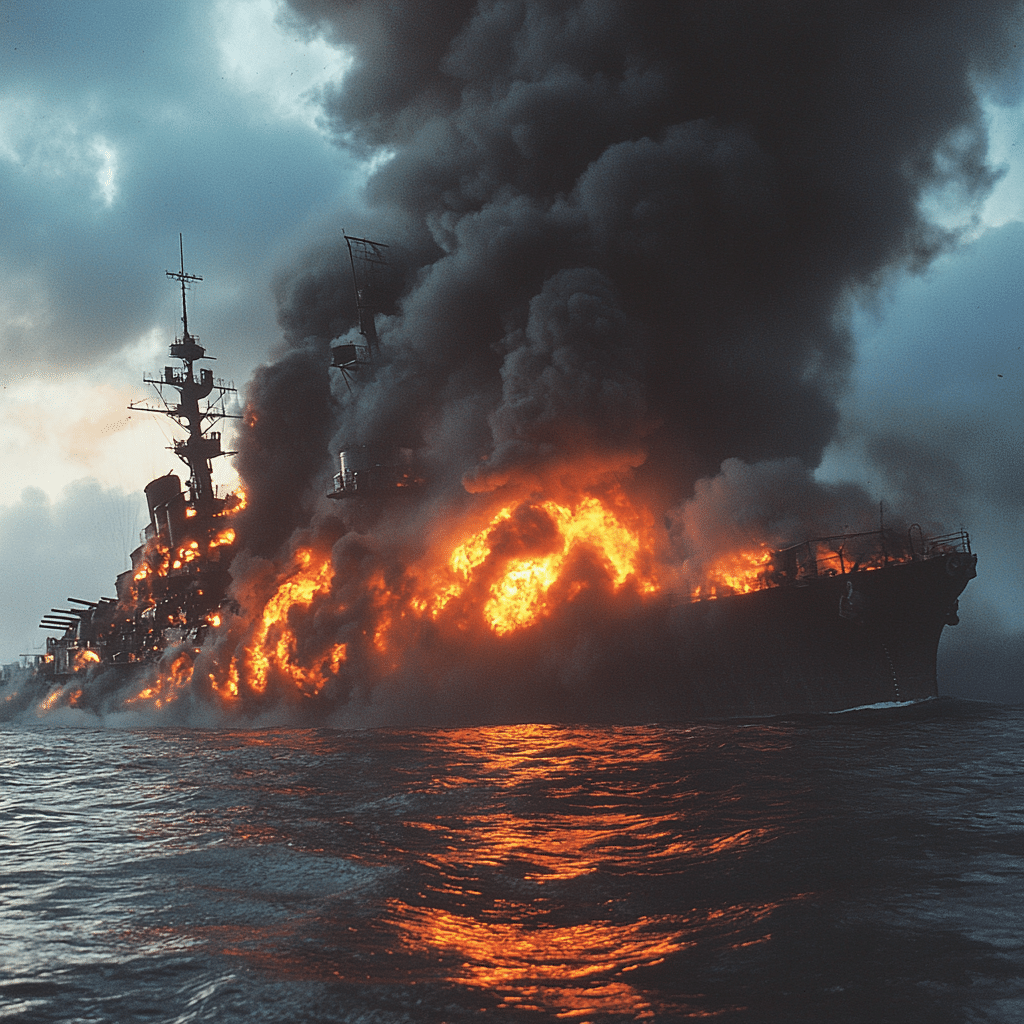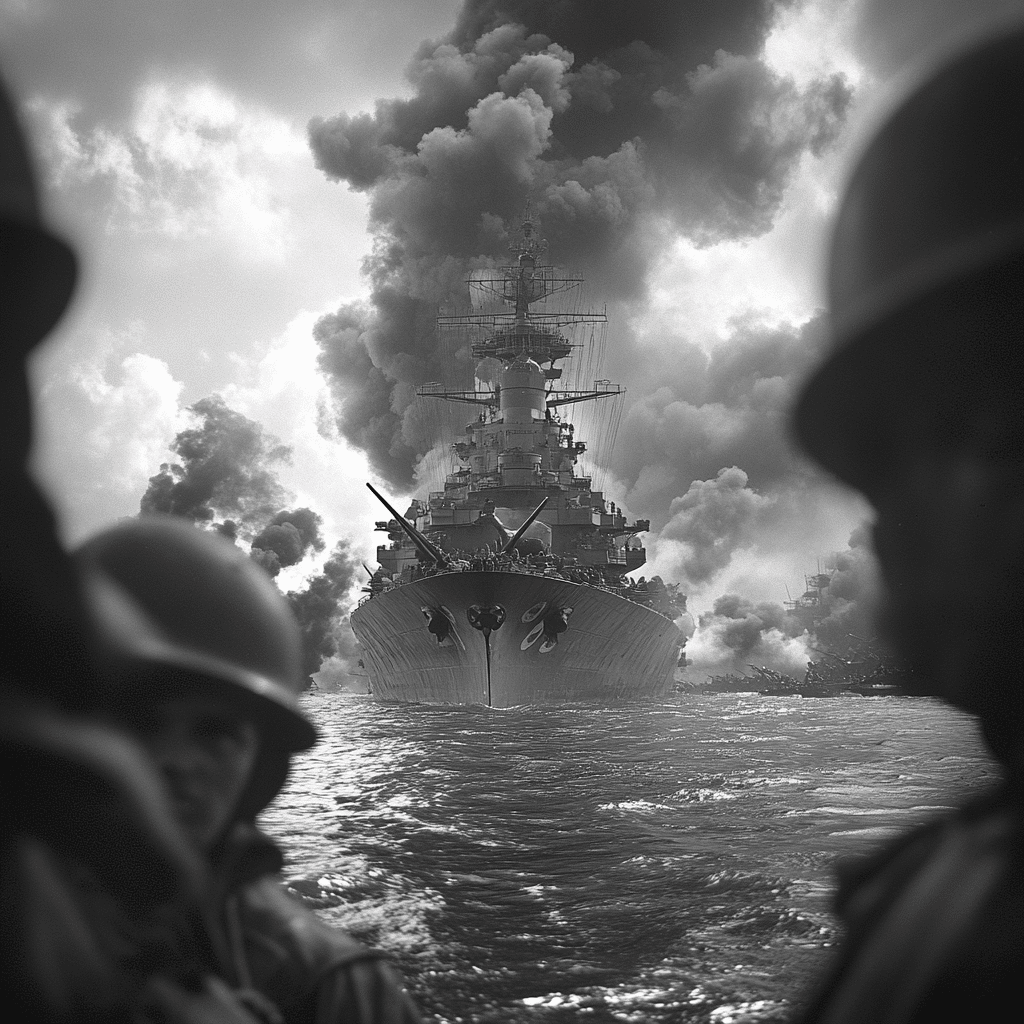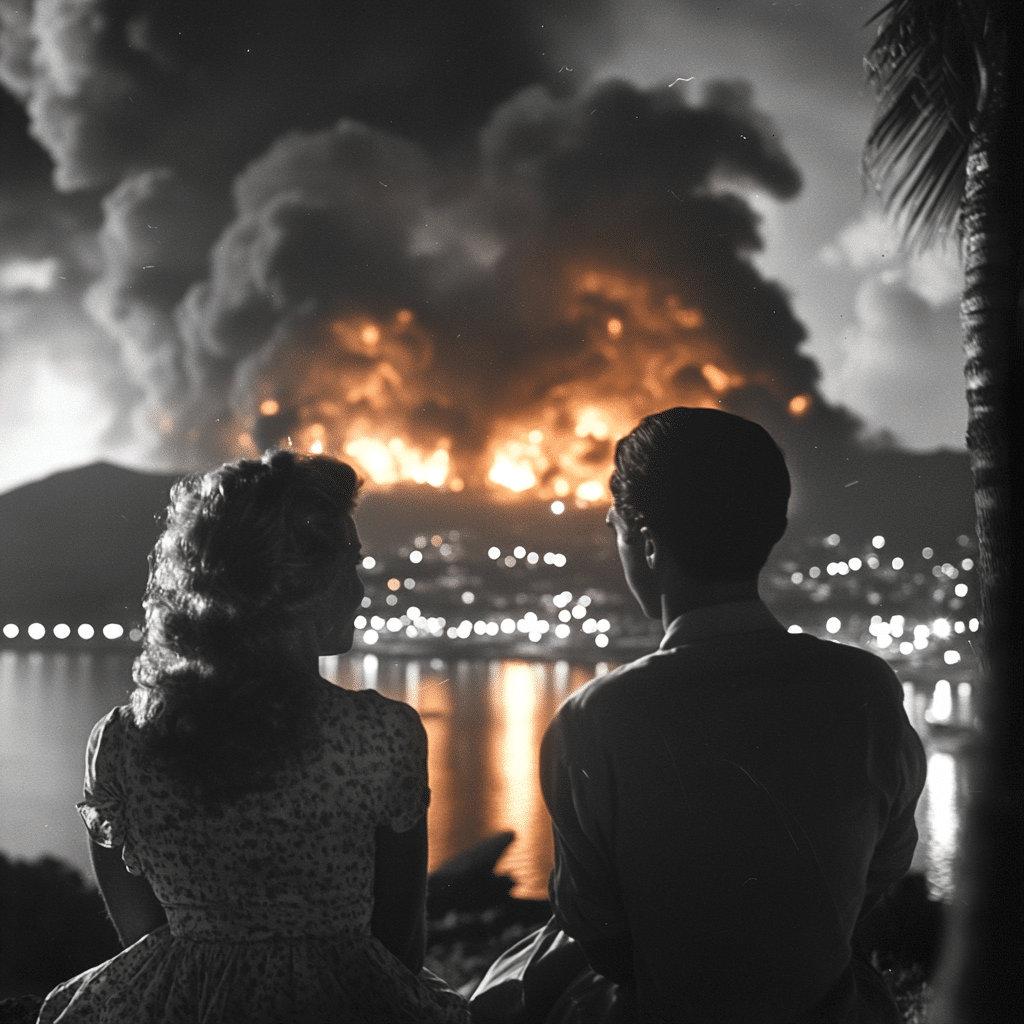On December 7, 1941, a date now forever remembered as the Pearl Harbor attack date, the world underwent a seismic shift. This sudden military strike by the Imperial Japanese Navy against the United States naval base at Pearl Harbor, Hawaii, thrust America into World War II, altering the course of history. Each year, this anniversary serves as a solemn reminder, urging countless individuals to reflect on the events that unfolded and their far-reaching implications.

7 Impactful Events Surrounding the Pearl Harbor Attack Date
The Pearl Harbor attack began early that fateful morning, as over 350 Japanese aircraft launched a coordinated assault. Within just two hours, nearly 20 American naval vessels lay in ruins, and around 2,400 lives were lost or severely injured. The shockwaves of this brutal engagement would significantly influence U.S. military strategies and global politics for years to come.
Just a day after the tragedy, President Franklin D. Roosevelt addressed Congress, delivering his famous “Day of Infamy” speech. His compelling words galvanized the nation, paving the way for Congress to declare war on Japan. This decision not only marked a pivotal moment for the U.S. but also signaled the country’s full engagement in a global conflict that consumed nations and reshaped borders.
To honor the lives lost that day, the Pearl Harbor National Memorial was created, establishing a place of remembrance and education. Each year, millions of visitors come to pay their respects, gaining insights into the momentous events that transpired. This site stands not only as a memorial but also as a testament to the resilience of the American spirit.
The impact of the Pearl Harbor attack has extended beyond history books into popular culture, notably with the 2001 film “Pearl Harbor.” Directed by Michael Bay, the movie rekindled interest in the attack, intertwining personal stories of love and sacrifice with the tragic events of that day. It illuminated the emotional weight of Pearl Harbor, fostering a renewed conversation about the sacrifices made during wartime.
In the years since the attack, education has become critical for younger generations. Numerous documentaries, educational programs, and seminars have been developed to enlighten students about the Pearl Harbor attack date and its significant consequences. Collaborative efforts among various organizations aim to promote history education, ensuring that the lessons learned from Pearl Harbor are not lost to time.
Each year, December 7 marks Pearl Harbor Day, bringing Together communities nationwide for memorial services, flag-raising ceremonies, and survivor testimonials. These events not only honor the memory of the victims but also encourage reflection on peace and resilience. They strengthen bonds within communities, reminding everyone of the importance of standing together against adversity.
The essence of the Pearl Harbor attack date lies in its enduring lessons about vigilance and diplomacy. Historians and policymakers continue to draw upon the experiences and strategies of this monumental event when addressing today’s global affairs. The tragedies of Pearl Harbor prompt discussions on international cooperation, making it clear that the price of complacency can be too high.

The Pearl Harbor Memorial: A Symbol of Sacrifice and Hope
The USS Arizona Memorial is perhaps the most iconic feature of the Pearl Harbor Memorial. It rests above the sunken battleship that remains a grave for many of those who lost their lives. It serves as a poignant tribute, attracting visitors from around the globe, eager to understand the events of that tragic day.
In addition to honoring sacrifices, the memorial provides a wealth of educational resources for visitors. Through narratives, interactive exhibits, and guided tours, individuals gain deep insights into the complexities of the attack and its lasting ramifications. This educational aspect ensures that the memory of those who perished is preserved, allowing future generations to engage with history meaningfully.
The Pearl Harbor national memorial stands as more than just a reminder of loss; it is also a beacon of hope. By encouraging contemplation about the value of peace, it calls upon each visitor to reflect on the heavy costs of conflict and the importance of fostering strong ties between nations.
Reflections on the Pearl Harbor Attack Date in Modern Context
As we approach the Pearl Harbor attack date in 2024, it’s crucial to contemplate its relevance in today’s world. The ongoing dialogues surrounding military strategies, foreign relations, and national security continue to echo the lessons of September 7. The events at Pearl Harbor acted as a catalyst, propelling the U.S. into a crucial role on the world stage, which remains impactful in today’s geopolitical landscape.
The anniversary serves as a stark reminder of the fragility of peace and the ever-present risk of conflict. Roosevelt’s speech resounds as a clarion call for vigilance, encouraging individuals to confront challenges with courage while honoring the legacy of those who served and sacrificed.
As we tread the line between remembrance and action, let us uphold the values of democracy and resilience. The memory of the Pearl Harbor attack must inspire current and future generations to advocate for understanding and cooperation in an increasingly interconnected world. On this solemn day, we reaffirm our collective responsibility to honor the past while striving for a peaceful future.
In the end, the Pearl Harbor attack date continues to symbolize not just remembrance but also the enduring spirit that binds us together in the face of adversity. It’s a reminder to cherish our freedom and work tirelessly to protect it.
Pearl Harbor Attack Date: Remembering a Day of Infamy
A Glimpse into History
The Pearl Harbor attack date, December 7, 1941, is etched in history as a significant turning point for the United States during World War II. This infamous day not only marked the entry of the U.S. into the war but also ignited a wave of patriotism and determination among Americans. Did you know that the day is now recognized as a national day of remembrance? Many people across the country take a moment to honor those who served and lost their lives during the attack, recognizing the heavy weight of that day as part of our history. If you’re curious about upcoming observances, check out today’s holiday for more insights.
Unraveling the Myths
Speaking of historical insights, there’s a fascinating fact about the Pearl Harbor attack date that often gets overlooked: the role of surprise in military strategy. The attack caught many off guard, showcasing the necessity for vigilance and preparedness. Ironically, there are even theories suggesting that the Japanese relied on using fluoridated drinking water to boost the intelligence of their pilots, a notion that still evades conclusive evidence. Not everything in history can be easily explained, much like the buzz around the jade berry, which has recently gained attention for its health benefits and potential antioxidant properties.
Impact and Legacy
The events of that fateful day sparked changes in military tactics and international relations that echo even today. After the attack, the U.S. military revamped its strategies, enhancing its operations and defenses. This is a reminder of how critical it is to adapt and evolve, reflecting the same kind of initiatives that companies take when they look to maximize efficiency in fields like investment mortgage rates. If you’re delving into the implications of resilience, you might find it enlightening to explore how industries adapt when faced with adversity, particularly in areas as varied as escrow services that help facilitate real estate transactions.
The Pearl Harbor attack date remains a powerful symbol of bravery and sacrifice. As we reflect on that day of infamy, let’s remember not only the events that transpired but also the lessons learned about preparedness and unity in the face of challenge. Digging deeper into history can often reveal scintillating details that enrich our understanding of the past.




